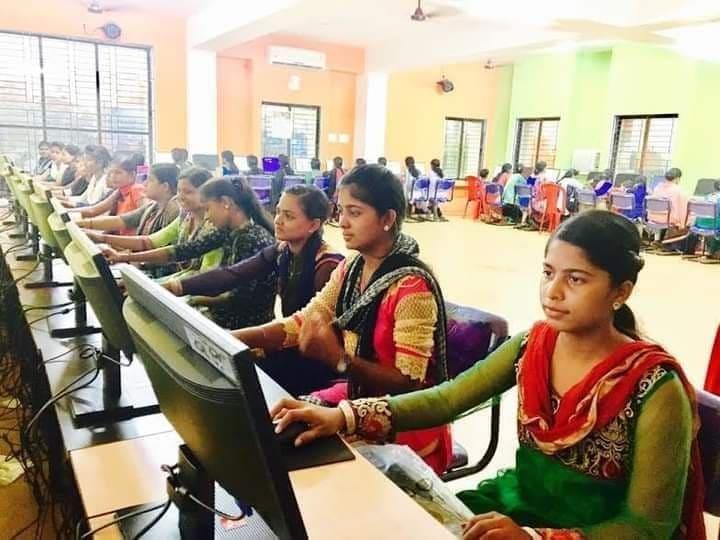Skills for Employment Investment training Programs. skills for Employment Investment Program. BASIS, through Skills for Employment Investment Program (SEIP) will to train up 23,000 over the contract period of 3 years. 5000, 9000 and 9000 trainees will be trained in the 1st, 2nd and 3rd year respectively. BASIS institute of Technology & Management (BITM) is planning to proposed twelve courses for new entrants and two courses for up skilling programs under this SEIP project.Eligible members of BASIS Student Forum will get preference to enroll in this training program under SEIP project Skills for Employment Investment Program
Skills Development Coordination and Monitoring Unit (SDCMU), Skills for Employment Investment Program (SEIP), Finance Division, Ministry of Finance, Government of Bangladesh is established with the objective of developing unskilled and semi-skilled labor force into productive and skilled labor in priority sectors and to support Government institutes, private companies, non-government organizations, industry skill councils and industry associations for achieving this objective.SDCMU is utilizing the funds provided by the Asian Development Bank (ADB) under Loan 3131-BAN: Skills for Employment Investment Program (SEIP) to provide assistance towards the end of skilling 1.25 million youth by 2021 in the focus sectors.
Skills for Employment Investment training Programs
Skills Development Coordination and Monitoring Unit (SDCMU), Skills for Employment Investment Program (SEIP), Finance Division, Ministry of Finance, Government of Bangladesh is established with the objective of developing unskilled and semi-skilled labor force into productive and skilled labor in priority sectors and to support Government institutes, private companies, non-government organizations, industry skill councils and industry associations for achieving this objective.SDCMU is utilizing the funds provided by the Asian Development Bank (ADB) under Loan 3131-BAN: Skills for Employment Investment Program (SEIP)







Skills Development Coordination and observation Unit (SDCMU). Moreover, Skills for Employment Investment Program (SEIP), Finance Division. In addition, the Ministry of Finance, Government of Bangladesh is established with the target of developing unskilled and semi-skilled labor pool into productive and adept labor in priority sectors and to support Government Institutes.
SEIP will support six high growth priority sectors in the first tranche and around 15 priority sectors (including Agro-processing and Tourism) during the entire SEIP period. These sectors are inevitable to make Bangladeshi exports competitive as well as to enhance the productivity of Bangladeshi labour force and earnings in domestic and overseas markets. The SEIP will mobilize resources to support public and private training providers to meet emerging labour market needs. Initial six priority sectors are:
(a) Readymade Garments and textile
(b) Construction
(c) Information Technology
(d) Light Engineering/Manufacturing,
(e) Leather and Footwear and
(f) Ship Building.
Highlights
- All the offered training programs are totally free.
- The minimum qualification to get enrolled in this program is Graduation or Diploma in Engineering depending on the training course.
- One trainee can do only one training program under this project.
- Each trainee will be given BDT 3,120 per month as a training allowance. But to get this benefit, the trainee must ensure attendance at least 80% of total classes conducted and abide by all the rules and regulation of the BITM
- The certainty of Job Placement.
These training programs will be implemented in BITM, Dhaka branch in the 1st year and gradually they will implement the programs in the regional centers located at Sylhet, Khulna, Rajshahi, Rangpur, Chittagong and Barisal.
Interested participants are being requested to do online registration. There will be a selection procedure to get chance in these exclusive training programs.
Skills for Employment Investment Program (SEIP)
Skills Development Coordination and Monitoring Unit (SDCMU), Skills for Employment Investment Program (SEIP), Finance Division, Ministry of Finance, Government of Bangladesh is established with the objective of developing unskilled and semi-skilled labor force into productive and skilled labor in priority sectors and to support Government institutes, private companies, non-government organizations, industry skill councils and industry associations for achieving this objective. SDCMU is utilizing the funds provided by the Asian Development Bank (ADB) under Loan 3131-BAN: Skills for Employment Investment Program (SEIP) to provide assistance towards the end of skilling 1.25 million youth by 2021 in the focus sectors.
Objective(s) of the SEIP Program
- Improve program for skilling new entrants and up-skilling existing workforce to enhance productivity and growth of priority industry sectors;
- Impart skills training linked to gainful employment or self-employment through PKSF partners and their livelihood programs as well as through Bangladesh Bank Small and Medium Enterprise (SME) Department linked to jobs in SMEs;
- Develop a network of training providers that are endorsed by industry for providing excellence of training to meet the skills needs of employers;
- Establish and implement a strategy to address the special needs of groups specified in the NSDP and ensure their participation in SEIP programs;
- Implement a vocational trainer development program for trainers and assessors and a management leadership program for training provider management reflecting NSDP requirements;
- Strengthen capacity of BTEB in approving training providers registration process, course accreditation and monitoring quality assurance and implementation procedures of training providers;
- Support the training providers for capacity development to ensure quality training delivery mechanism;
- Establish and institutionalize a credible recognition of prior learning (RPL) system;
- Support the NSDC and key government ministries to strengthen institutional arrangements and coordination to enable the TVET system to meet policy objectives within a coherent skills development framework; and
- Support the establishment and operationalization of a National Human Resources Development Fund (NHRDF).
